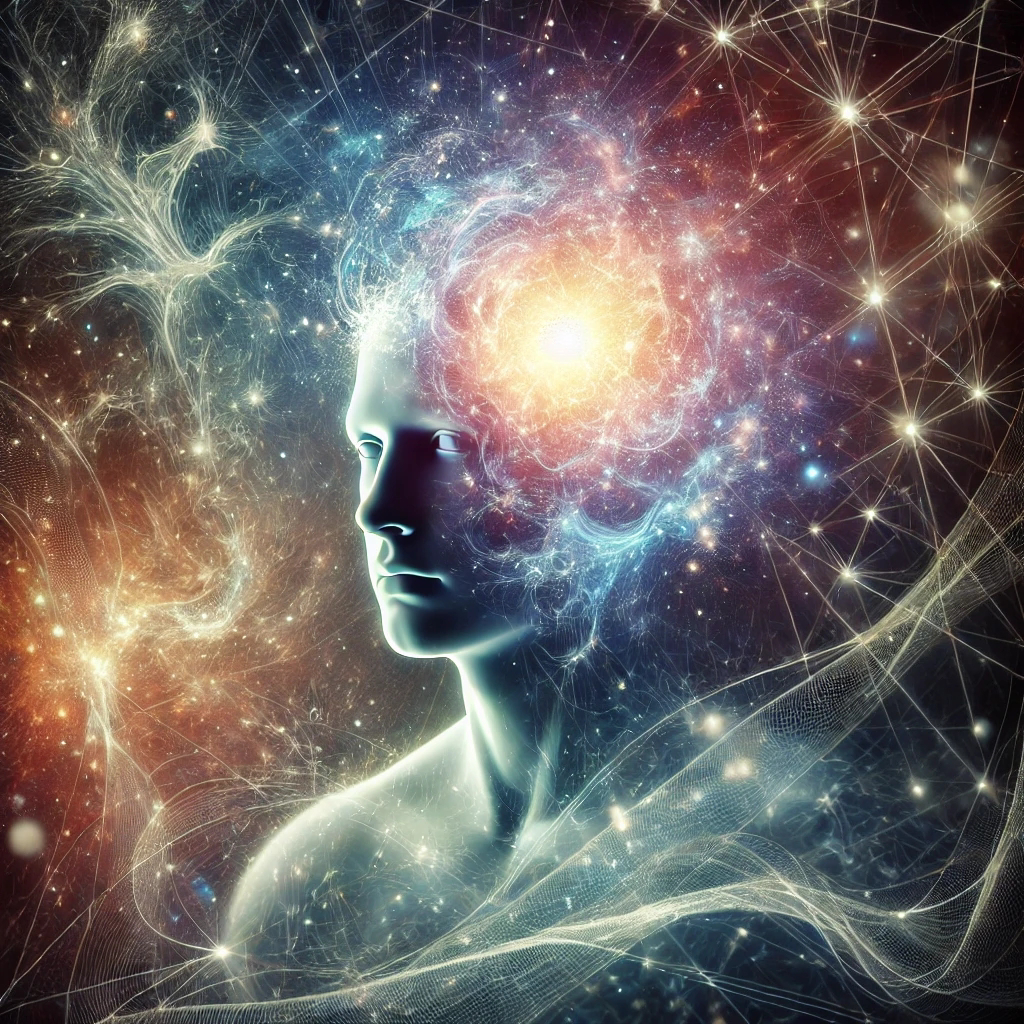Hi there, dreamers and deep thinkers!
Let’s unravel one of the most profound mysteries of existence today—consciousness. This intangible essence is at the heart of everything we are and everything we do. From the rush of awareness when we wake to the gentle hum of thoughts that linger as we drift to sleep, consciousness feels like a thread connecting us to ourselves, to one another, and perhaps, to the universe itself.
But what is it? Why do we have it? And could it be a gateway to understanding something far greater? Let’s take a loving journey into this infinite question.
Consciousness: The Experience of Being Alive
Consciousness isn’t just a word; it’s the experience of life itself. It’s the awareness that lights up your world—the ability to feel, think, and marvel at a sunset or a loved one’s laughter. It’s as personal as your memories and as universal as the stars above.
But defining consciousness? That’s a challenge. Philosopher David Chalmers famously called it “the hard problem,” and for good reason. While scientists can measure brain activity, they can’t quite explain why we experience it as we do. What transforms electrical signals into the vivid, colorful world we perceive? What makes us, us?
A Tapestry of Theories
Throughout history, consciousness has been explored from every angle—scientific, philosophical, spiritual. Each perspective is like a thread in a larger tapestry, weaving together insights into what it means to be alive.
1. Consciousness as a Brain Process
Many scientists believe consciousness arises from the brain—a symphony of neurons firing in perfect harmony. This materialist view sees awareness as an evolutionary tool, helping us survive, connect, and solve problems. It’s a tidy explanation, but does it capture the sheer wonder of being? Perhaps there’s more to the story.
2. Consciousness as Universal
Other thinkers, like proponents of panpsychism, argue that consciousness isn’t just a human trait—it’s a fundamental part of the universe, present in all things. Imagine every particle of existence, no matter how small, containing a spark of awareness. This idea suggests we’re not just in the universe; we are the universe, experiencing itself.
3. Integrated Complexity
Another approach, Integrated Information Theory (IIT), says consciousness arises from the complexity and interconnectedness of a system. The more intricately something processes information, the richer its awareness becomes. This explains why humans have such vivid experiences while simpler beings do not. But does it also hint at a cosmic interconnection we’ve yet to fully grasp?
4. The Quantum Mind
Perhaps the most poetic theory ties consciousness to quantum physics. Could our awareness be a reflection of the universe’s own consciousness? Some suggest we’re not just passive observers of reality—we actively shape it through our perceptions. This perspective brings a spiritual dimension to science, inviting us to see ourselves as co-creators in the grand cosmic dance.
Why Do We Have Consciousness?
Ah, the golden question. Why are we conscious? Evolution offers some clues:
- Survival: Awareness helps us navigate danger, make decisions, and plan ahead.
- Connection: Self-awareness enables empathy and relationships, fostering the social bonds that define humanity.
- Creativity: Consciousness allows us to dream, innovate, and create meaning in our lives.
But perhaps these answers only scratch the surface. Could consciousness serve a deeper purpose—a bridge between the physical and the eternal?
The Interconnected Essence of All Things
Here’s where I think of my mother. She was more than her body, more than her mind—she was a radiant presence that touched everything around her. Losing her didn’t sever our connection; it revealed how deeply interwoven we are. Consciousness, in many ways, feels like that—a thread tying us to a greater whole, to one another, and to something timeless.
When I look at her legacy and feel her love in quiet moments, I’m reminded of the profound truth: everything is one. The boundaries between us, between mind and matter, between life and death, are far thinner than they seem.
A Mystery Worth Embracing
Perhaps consciousness is not something to solve but something to celebrate. It’s what lets us wonder, dream, and explore the infinite. It’s the lens through which we see beauty and the vessel through which love flows. It connects us to each other, to the stars, and to whatever lies beyond.
So, the next time you marvel at the sky or lose yourself in laughter, pause for a moment. That’s consciousness. That’s you. That’s us, forever entwined in the great mystery of existence.
What are your thoughts, dear reader? Is consciousness just a biological byproduct, or do you feel it’s a universal force connecting us all? I’d love to hear your musings. Until next time, stay curious! 🌟
April
Cognitive Psycho





One response to “What is Consciousness and Why Do We Have It?”
[…] What is consciousness, and why do we have it? […]